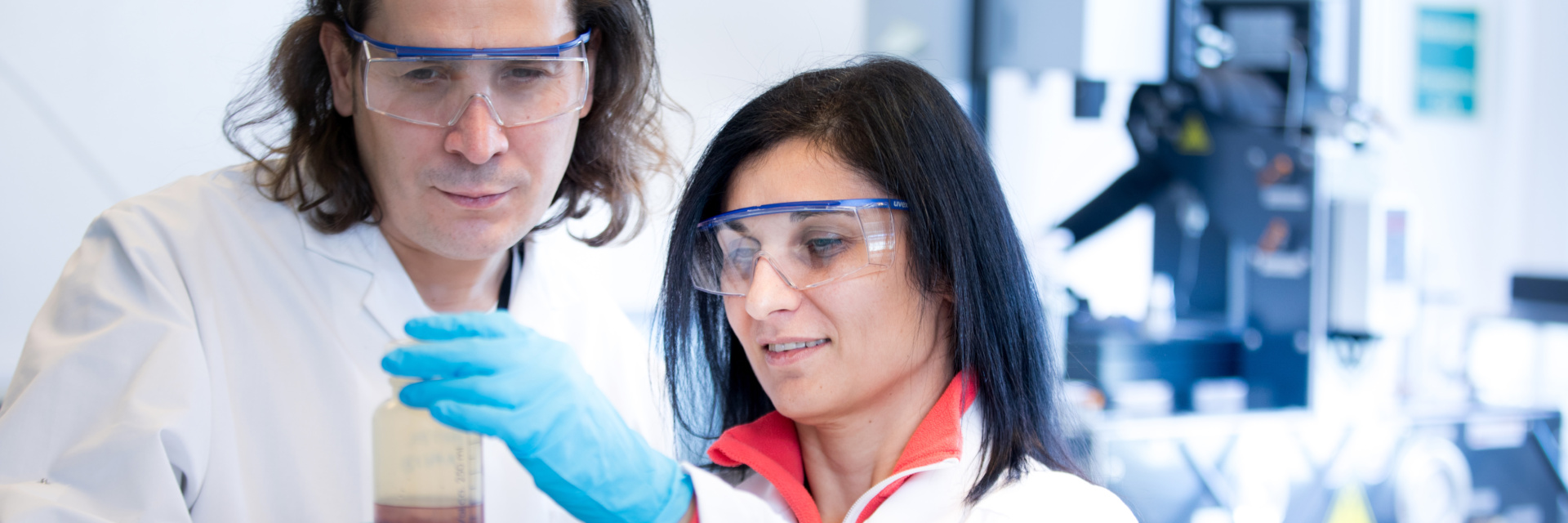Colloid, Interface and Fluid Research Laboratory (CIRLAB)
IFE’s Colloid, Interface and Fluid Research Laboratory (CIRLAB) (previously known as Fluidlab) is located at the Department of Process and Fluid Flow Technology (PROTEK). CIRLAB holds wide range of equipments to characterize colloids, interfaces and fluids for various purposes and applications.
The laboratory currently performs research and development activities related to the crude oil processing and production, material science and engineering, surfactant science and technology, polymer technology and engineering, dispersion science and technology, corrosion science, battery technology, biomedicine and separation technology.
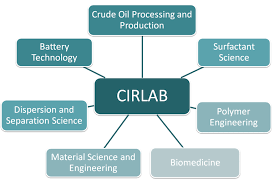
Instrumentation:
Malvern Master Sizer 2000 Particle Size Analyzer with Hydro 2000SM Dispersion Unit
The instrument is used to study the particle size of dispersion systems, such as suspensions and emulsions. Particle size measurements are based on laser light scattering technique.

Specifications:
- Principle: Laser light scattering
- Analysis: Mie and Fraunhofer scattering
- Data acquisition rate: 1 kHz
- Red light source: He-Ne, 633 nm
- Blue light source: LED, 470 nm
- Particle size: 0.02 to 2000 µm
Applications: colloids, emulsions, suspensions, polymers, battery, cements, carbon nanotubes, ceramics, foods and beverages, waste water treatments, coagulations, crystal formations.
Malvern Zetasizer NANO-Z
The instrument is used to study the zeta potential for dispersion systems (suspensions and emulsions). For the measurements known electric field is applied to the sample and then velocity of the dispersed phase in a liquid is measured. Using the obtained velocity, viscosity of the continuous phase and dielectric constant the software calculates the zeta potential. The instrument allows us to measure relative stabilities and iso-electric points for dispersed systems.

Specifications:
- Principle: Electrophoretic light scattering
- Measurement range: 3.8 nm to 100 µm
- Light source: He-Ne laser 633nm.
- Operating temperature: 10-35oC
Applications: colloids, emulsions, suspensions, polymers, detergency, surfactants, clay technology, battery, cements, ceramics, oil well technology, enhanced oil recovery, water purification, minerals and ore flotation, detergency, paint, paper, fiber, purification.
KSV CAM 200 – Surface Tension and Contact Angle Meter
The instrument is used to measure static and dynamic interfacial tensions, static and dynamic contact angles and surface free energies for surfactants, emulsions, polymers, paints, coatings, paper, films ink and substrates etc. It is a fully computer controlled instrument. Images are captured using high speed camera and automatic image analyses are performed for the measurements.

Specifications:
- Principle: Drop shape analysis
- Camera: CCD firewire (512×480) with telecentric zoom optics
- Frame intervals: 10 ms to 1000 s
- Contact angle: 5o – 180o
- Surface tension: 0.01 – 999 mN/m
- Operating temperature: ambient to 80oC
Applications: colloids, emulsions, suspensions, polymers, detergency, surfactants, surface technology, surface wettability, adhesion, spreading, surface free energy, biocompatibility, battery, cements, ceramics, oil well technology, enhanced oil recovery, agrochemicals, minerals and ore flotation, detergency, paint, paper, fiber, purification.
Krüss DSA 100 B Drop Shape Analyzer Combined with Eurotechnica Hastelloy High Pressure and Temperature View Chamber
The instrument is used to measure static and dynamic interfacial tensions, static and dynamic contact angles and surface free energies under high temperatures and pressures. The instrument is very useful to mimic and perform measurements under petroleum reservoir conditions in the presence of any gases. It is a fully computer controlled instrument. Images are captured using high speed camera and automatic image analyses are performed for the measurements.

Specifications:
- Principle: Drop shape analysis
- Camera: CF31 High Speed Camera
- Frame intervals: 10 ms to 1000 s
- Contact angle: 5o – 180o
- Surface tension: 0.01 – 999 mN/m
- Operating temperature: ambient to 180oC
- Operating pressure: ambient to 690bars
Applications: colloids, emulsions, suspensions, polymers, detergency, surfactants, surface technology, surface wettability, adhesion, spreading, surface free energy, biocompatibility, battery, cements, ceramics, oil well technology, enhanced oil recovery, agrochemicals, minerals and ore flotation, detergency, paint, paper, fiber, purification.
Anton Paar Physica MCR 301 Rheometer Combined with High Pressure Cell
The instrument is used to measure rheological properties of suspensions, emulsions, polymer solutions, gels etc. Not only qualitative but also quantitative relationships between deformations and stresses for samples can be obtained from the measurements. The structural properties for samples can be obtained by performing rotational, elastic, creep, relaxation and oscillation tests. The instrument can also allow us performing rheological measurements under elevated temperatures pressures.

Specifications:
- Minimum torque rotation: 0.05 µNm
- Minimum torque oscillation: 0.01 µNm
- Minimum torque rotation/oscillation: 200 mNm
- Speed range: 10-61/m to 3000 1/m
- Available geometries: Concentric cylinder, plate-plate, cone-plate
- Sample volume: 0.6 to 15 mL
- Operating temperature: -150oC to 1000oC
- Operating pressure: ambient to 150bars
Applications: colloids, emulsions, suspensions, polymers, tribology, surfactants, multiphase transport, crude oil production and processing, food processing, pharmacy, geology, mining, concrete, cement, plastic, paint, fiber, drilling.
Mettler Toledo Focused Beam Reflectance Measurement Probe (FBRM® D600R)
Mettler Toledo FBRM® D600R probe is used to investigate particle/droplet size for dispersion systems. The instrument measures particles and droplets continuously and allows us real time count measurements. Thus, it is very useful tool to optimize particle systems, control process repeatability and control quality and performance for dispersion systems.

Specifications:
- Probe OD: 2.5 cm
- Probe length: 40 cm
- Drive: Air
- Bearing: Air
- Material type: stainless-steel 316
- Operating temperature: -10oC to 150oC
- Operating pressure: ambient to 10bars
Applications: colloids, emulsions, suspensions, multiphase transport, crude oil production and processing, food processing, pharmacy, geology, mining, concrete, cement, plastic, paint, fiber, drilling, crystallization monitoring.
Mettler Toledo ParticleViewTM V19 – Particle Vision and Measurement Probe
The instrument is a probe-based instrument that visualizes particles and droplets in real time. It allows us to get high resolution images continuously without need for sampling. The instrument is very useful to optimize particle systems, control process repeatability and control quality and performance for dispersion systems.

Specifications:
- Probe wetted material: C22 Alloy
- Probe window material: Sapphire
- Probe dimater: 1.9 cm
- Probe length: 40 cm
- Optical resolution: ˃2 µm
- Operating temperature: 10oC to 120oC
- Operating pressure: ambient to 10bars
Applications: colloids, emulsions, suspensions, multiphase transport, crude oil production and processing, food processing, pharmacy, geology, mining, concrete, cement, plastic, paint, fiber, drilling, crystallization monitoring.
OPUS Particle Size Analyzer with Ultrasound (0,1 – 3000 µm) Combined with OPUS Stand by Rack
Opus particle size analyzer combined with OPUS stand by rack is used to investigate particle/droplet size for dispersion systems for on-line and off-line applications in the laboratory. The instrument measures particles and droplets continuously based on ultrasound measurements. The instrument allows us to measure size of dispersion systems under elevated pressures (up to 40 bar), temperatures (up to 120oC) and pHs (from 1 to 14).
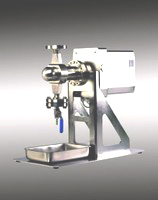
Specifications:
- Principle: ultrasound
- Particle size: < 0.1 µm – 2000 µm
- Evaluation: extinction function
- Measuring time: less than 1 minute
- Operating temperature: up to 120oC
- Operating pressure: up to 40bars
Applications: colloids, emulsions, suspensions, multiphase transport, crude oil production and processing, food processing, pharmacy, geology, mining, concrete, cement, plastic, paint, fiber, drilling, crystallization monitoring.
White Electronic Inch Torsion Balance
The Torsion balance is used for routine analysis of the samples, such as liquids and surfactant systems, to determine their

- Surface tensions
- Interfacial tensions
- Critical micelle concentrations
Measuring principle of the instrument is direct force measurements using a probe (Du Nouy ring or Wilhelmy plate).
Applications: emulsions, polymers, surfactants.
Anton Paar DMA 35 Portable Density/Specific Gravity/Concentration Meter
DMA 35 portable densitometer from Anton Paar is used for routine density measurements in our research laboratories to characterize the fluid samples. The instrument allows us density, specific gravity and temperature measurements during on-site operations.
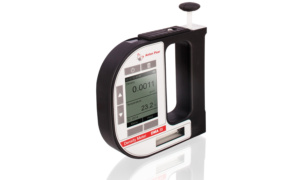
Specifications:
- Measuring density range: 0 to 3 g/cm3
- Temperature range: -10oC to +50oC
- Sample volume: 2 mL
- Viscosity range: 0 to 1000 mPa.s
Anton Paar DMA 48 Dencity/Specific Gravity/Concentration Meter
The instrument is used to determine the density and specific gravity of liquids and gases.
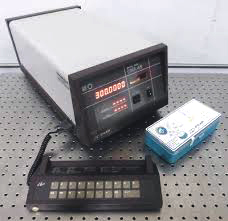
Specifications:
- Measuring density range: 0 to 3 g/cm3
- Temperature range: -10oC to +70oC
- Pressure range: 0 to 10 bars
- Amount of sample in cell: 0.7 mL
- Measuring time per sample: ~ 3 minutes
